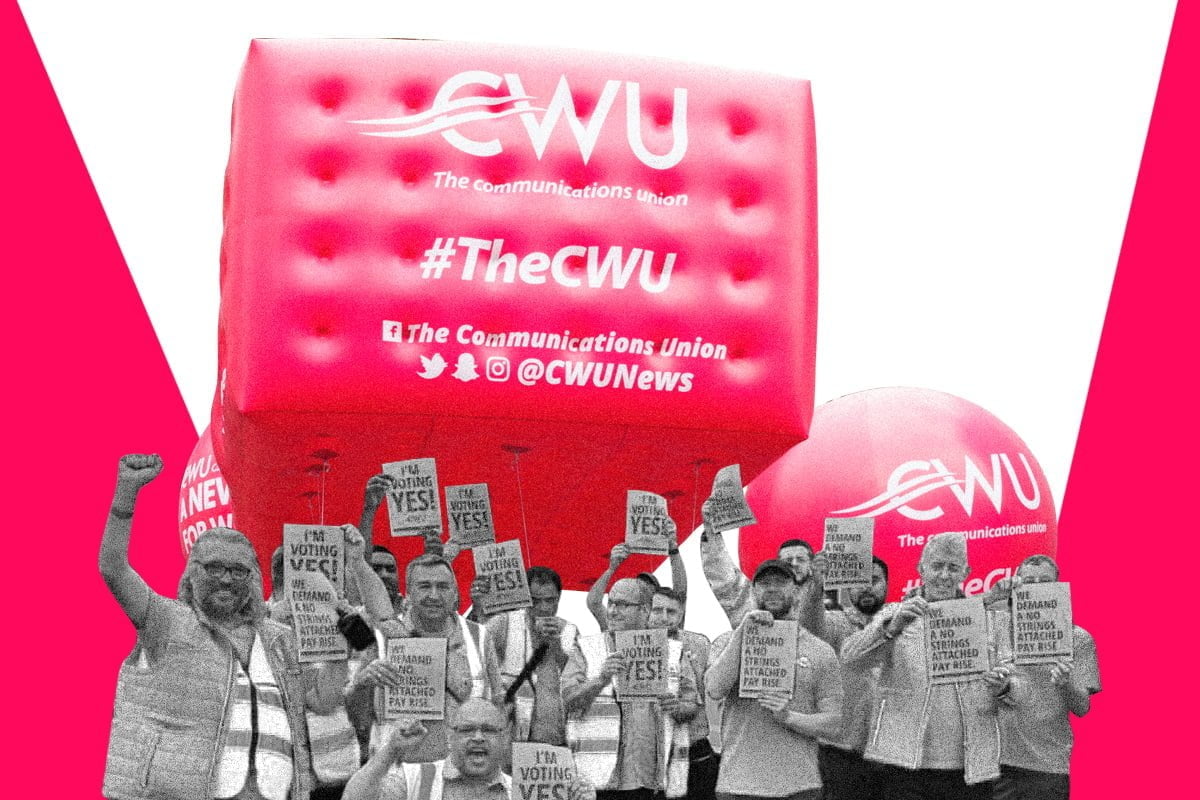After a hard-fought strike campaign that has lasted since last August, including strikes over Christmas, postal workers organised in the CWU have finally been presented with a deal.
Given the sacrifices and courage that rank-and-file members have shown during this fight, the least we could expect is a deal that tackles the pressing issues we face.
Unfortunately, what we’re being offered is a package that falls short on almost every criteria; a deal that the union’s leadership is now pushing on members, with the argument that it represents the best that we can get.
Not too long ago, the message from the top of the union was that we were fighting for a pay rise with “no strings attached”; and that we were battling to save Royal Mail from privatisation.
But now the official tune has changed. And this sudden about-face has confused and angered members.
Rotten deal

So what exactly are the employers offering us?
On pay, the deal promises a 10% rise spread over three years. Furthermore, we are now being asked to accept changes to our shift patterns after all, with more early starts and casualised conditions. These are the very changes that we voted overwhelmingly to reject back in January.
Adding insult to injury, there is the issue of victimisation. A number of reps and shop stewards have been targeted by management during the course of this dispute. But instead of the union fighting for their full reinstatement, their cases will be decided individually by an ‘impartial’ inquiry.
So far, this deal seems to be producing two reactions within the CWU. One is to say: “Well, the deal is bad, but we should accept it, as the circumstances have changed.” In other words, we are supposed to believe that Royal Mail cannot afford to make us a better offer. This is the view promoted by the leadership.
There is another view emerging, however, particularly from frontline CWU members. This more militant perspective sees this deal as representing everything that we have fought so hard against. As such, it should be rejected.
This a possibility that the union leaders are clearly worried about, given that they recently decided to delay the ballot on a pretext, with the vote now set to take place between 25 May and 14 June.
Bosses’ offensive
It’s not hard to see why many postal workers, including myself, will be rejecting this deal.
Since last December, conditions for postal workers have gone from bad to worse. Emboldened by the effective suspension of strike action by the CWU after its reballot at the start of February, Royal Mail bosses have pressed forward with their attacks.
This has had several consequences. Firstly, on the delivery side, increased workloads have been imposed, with posties now working several routes, not just the one they’re familiar with.
Worse yet, this has taken place alongside changes to processing duties, which have been shifted from the delivery offices onto the shoulders of the posties.
Instead of being given pre-scanned parcels to deliver, posties must now scan and process parcels themselves – further increasing delivery times.
This also means a leap in the risk that packages won’t be delivered on time. No matter how hard posties work, under these conditions, there isn’t enough of us to deliver everything we’re given.
None of this matters to the bosses, however. They see these changes as part-and-parcel of their new casualised model for Royal Mail.
Fight not over
The leadership might genuinely believe that Royal Mail is on the verge of collapse. Even if this was the case, however, it is not workers who should be footing the bill. We should not have to accept being poorer and more overworked because of the bosses’ mistakes.
Royal Mail, like all big businesses and privatised companies, can only survive on a capitalist basis by squeezing its workforce more and more. This is the ruthless dog-eat-dog logic of the profit system; the race to the bottom of the ‘free market’.

Postal workers cannot stand for this state of affairs. We must overwhelmingly vote to reject this deal, in order to send a clear message to the bosses and our union leaders: that we’ll fight for as long as it takes.
If Royal Mail are pleading poverty – as an excuse to turn us into yet another gig-economy courier outfit – then they must prove it. The union should be demanding that the bosses open up their books to the whole labour movement, so that we can view for ourselves where the money’s gone.
If this turns out to be a lie, as might be suspected given Royal Mail’s track record, then we’ll soon find out.
If not, we should fight for the renationalisation of the entire postal service under workers’ control – and without a penny of compensation to the fat-cats who’ve been running it into the ground for years!
Above all, to carry this programme forward, what is needed is a fighting leadership – a leadership that won’t buckle under the bosses’ threats, but will instead struggle to the end in order to deliver what workers demand.






